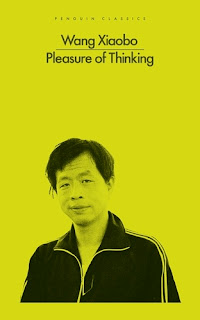Suppose that somewhere in history there was a great sage who suddenly discovered all novelties and things interesting, revealing the ultimate truth such that there would be nothing left to be discovered, then I would prefer to be born in a time before such a great sage existed. The reason is that if the ultimate truth has already been discovered, then the only thing left for humanity to do would be to judge everything based on this truth.
Wang Xiaobo was born into a family of intellectuals. But he was forced to work on a farm in Yunnan as a part of the Cultural Revolution. It is evident from these essays that his experiences in the commune and his later ones as a teacher and factory worker were critical in shaping his unique perspectives on life, literature, and culture. He married the famous sociologist and activist Li Yinhe. Several essays in this collection have sprouted from the sociological works of Li Yinhe about homosexuals, marginalised communities, and villagers in China. He went to the US as a student for a short period and then returned to China. He worked as a lecturer in sociology until his early death in 1997.
This collection contains 33 essays laced with black humour that discuss a variety of themes. It will be easy to discuss these essays if we group them under some headings. Though the contents may spill over in between these categories to a certain extent, it will make sense if we group them as essays on thinking, on sociology, on China, on abroad, and on writing and literature. It seems the pieces are placed in the order of their humour content, with the initial ones being more meditative and sober and the later ones going all out on sarcasm and black humour, the exception being the very last one, The Silent Majority, which is more contemplative.
The first set of essays ruminates about being an intellectual capable of thought. These are mostly connected with his experiences in the commune, where he had to work under army men who were incapable of any thought and simply followed orders. In the essays about sociology, Xiaobo refers to the work of his wife and writes about different marginalised communities within China. He says that even the Chinese of his time were ignorant of the homosexual community in China because they operated as a silent minority. He writes on topics like village communities in China, feminism, leftism in the USA, and cultural relativism. The essays in these two categories are more reflective and matter-of-fact accounts, though we are treated to glimpses of his sharp wit and sarcasm occasionally.
There are a bunch of essays on China that ponder the situations in the country that he observed. Razor-sharp criticism can be found in these pieces, though it is evident that he has deep love and patriotic feelings for his country. He writes about the damages caused to China from the time of Confucius to Mao's Cultural Revolution, which severely impaired the country. The writer writes in his essays about his life experiences in America and Europe. He writes about food, houses, travel, and many other facets of life in foreign nations and compares them with China. These essays are loaded with sharp observation and the recounting of several hilarious incidents.
His essays on literature and writing are some of my favourites in the collection, because here I could feel the balance of penetrating humour and profound thought. He explains the reason he chose to write, about his first novel and his writing style, about different novels with oppression as the theme, and about a book by Italo Calvino about writing. The final essay of the collection and probably the longest one, The Silent Majority, sums up the total world view of Wang Xiaobo and provides a perfect culmination to the book.
As the book is written mostly in the 1990s, the social and political situation of China and the whole world has significantly altered. The issues that Xiaobo addresses in many essays have also undergone transformations, and many of them may seem irrelevant. The pop culture and technological references are outdated. But if we take a dive below surface level, it can be observed that the essays are relevant even now, albeit sometimes in an altered context. For example, in his commentary on the internet, he bemoans the deluge of information and misinformation that it supplies to the consumer, which has escalated today when some of that information is our own.
Reading Xiaobo visualised in me a seahawk that flies far above the ocean, observing it closely and once in a while plunging into it and rising again with a fish on the beak. He gives us a general description of the subject and, when we least expect it, takes the plunge and throws towards us a surprise observation that is consistently profound and witty.

This sounds like my kind of a book.
ReplyDelete